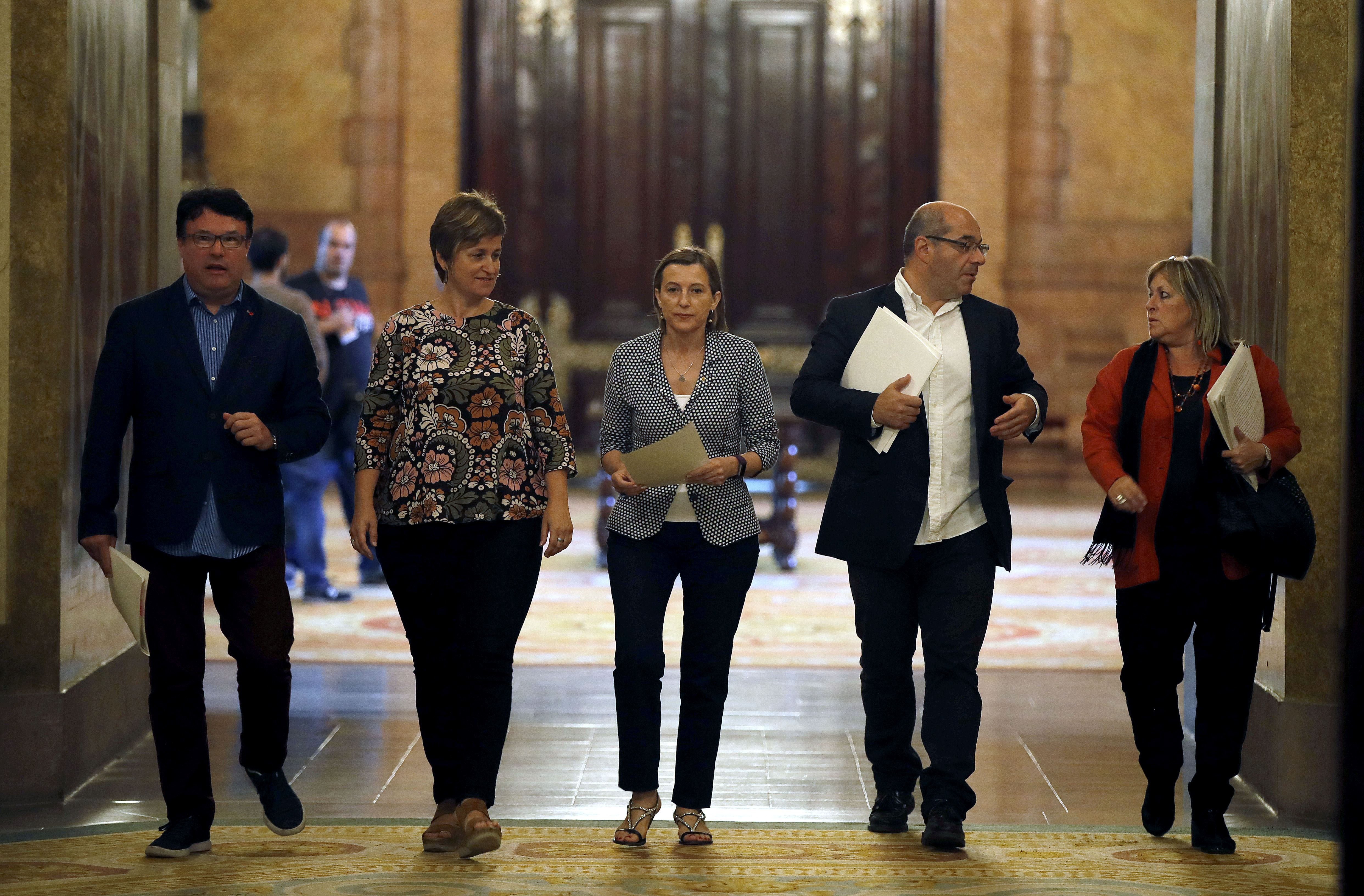Neither the Constitutional Court, nor the Supreme Court of Justice of Catalonia (TSJC), nor the Public Prosecutor's Office will be able to intervene in the debates of the Catalan Parliament. That was the statement from the president of the Catalan parliament, Carme Forcadell, after receiving the complaint from the Public Prosecutor this Tuesday that has been accepted for consideration by the TSJC which accuses them of disobedience and perversion of justice. She appeared alongside Lluís Guinó, Anna Simó, Ramona Barrufet and Joan Josep Nuet. "No court will decide the future of this country, it will be decided by its citizens at the ballot box," she said. The strongest language, however, came from Nuet, who said "they're hoping to finish us off".
Forcadell described it as an "unheard of event" and, on behalf of all the pro-independence members of the Parliament's Board, warned that they would refuse "to become censors of a government that's unable to resolve political problems". The Parliament's president said that "they want the Parliament's Board to censure itself and become a miniature Constitutional Court". She defended "freedom of expression and the deputies' right to initiative", in the face of those who want to "limit" them.
“It's part of the Spanish government's escalation to stop the 1st October [referendum],” Carme Forcadell said. She highlighted the fact that the Public Prosecutor had included the crime of misuse of public funds in its complaint (which could lead to prison sentences), which was not included by the TSJC in the version it accepted for consideration. "It was just looking for prison sentences for allowing a debate," she said.
That's what caused Joan Josep Nuet, Board member for CSQP (Catalonia Yes We Can), to denounce that "they wanted nothing more than to destroy our lives". Nuet argued that "they know that our ideas are difficult to destroy" and that "because of that they hope to finish us off". The CSQP deputy says that he sees the "intention of a political trial".
Nuet also highlighted that people who are neither pro-independence, nor voted for the Referendum Law are being pursued, and have been criticised about how the law was approved, as in his case. "The PP [Popular Party] and its judicial instruments are going for a whole people, although we're not pro-independence," he said. "Facing that, indifference isn't possible. Only through debate will be find our way as a country," he concluded.

